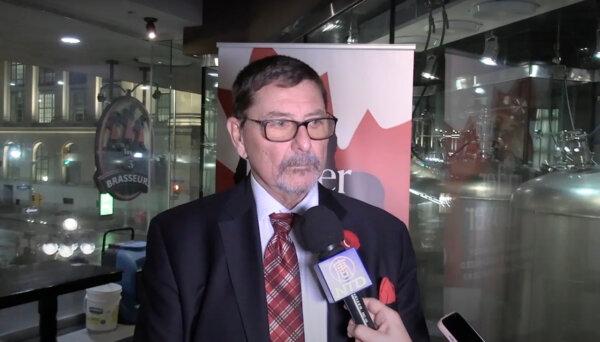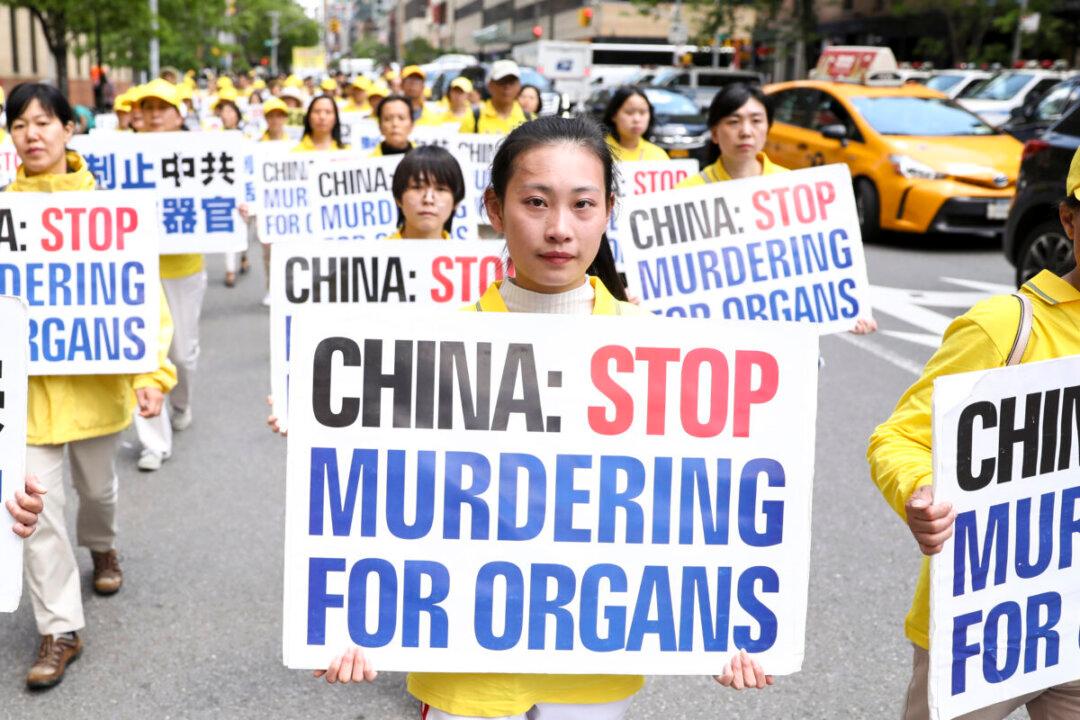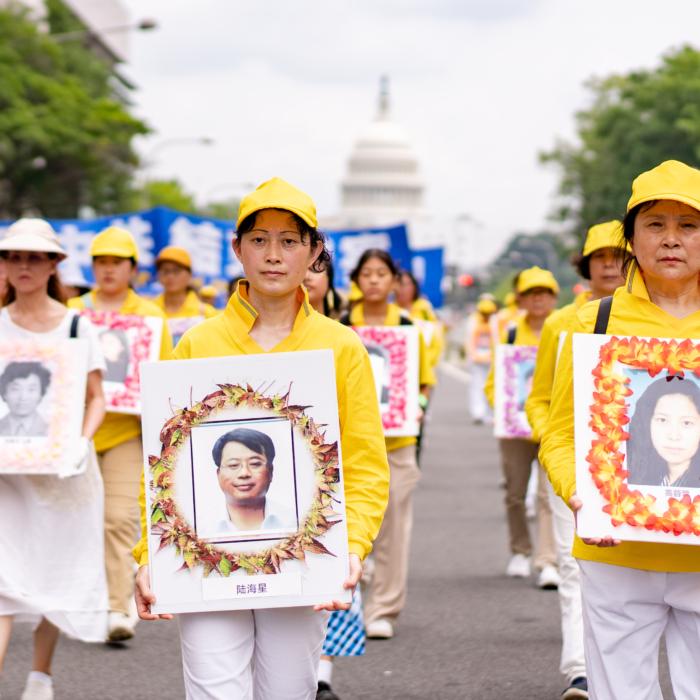Canadian prime ministers were “ignorant” when they sought economic favour with China and fostered ties with a key political figure involved in Beijing’s organ harvesting from Falun Gong prisoners of conscience, says a former RCMP director.
In the book, Mr. Clement recounts his three-year deployment to Hong Kong from 1991 to 1994. During this time, he gained insight into how Asian-based crime organizations that extend their operations to Canada are connected to the Chinese Communist Party (CCP). In particular, he developed an understanding of the Chinese transnational organized crime syndicates known as “triads” and how the CCP uses these gang members for extensive foreign interference and penetration into Canadian society.
“China, under the Chinese Communist Party, is essentially a criminal organization that represents a fundamental challenge to lawful societies around the world,” he writes, describing China’s ruling elite as “the biggest transnational organized-crime group in the world.”
He pointed to the regime’s use of Chinese international students for intelligence gathering and Chinese immigrants to help maintain control over the Chinese diaspora. Threats involving organized crime noted in the book include the laundering of fentanyl-trafficking proceeds from China through casinos, real estate bought with the proceeds of crime, underground banks, and Chinese businesses being forced to pay protection to the triads.
However, despite warnings from intelligence officers, Canada missed numerous opportunities to halt Chinese espionage and other threats linked to the CCP, Mr. Clement said. He attributed this negligence, in part, to trade and the political belief that extending open arms to China were more important than the negative consequences for Canada as well as its Chinese diaspora.
“Canada was still trying to curry favours for economic benefit working with China,” he told Epoch Times’ sister company NTD Television.
He highlighted how different Canadian prime ministers had been “wined and dined” by Bo Xilai, a former commerce minister in China.
Organ Harvesting
Mr. Bo, the CCP chief who ruled the southwestern megapolis of Chongqing until his arrest in April 2012, received a life sentence in September 2013 on charges of “bribery, corruption, and abuse of power.” His ouster was connected to political factional infighting within the CCP involving former Chinese leaders Jiang Zemin and Hu Jintao. Mr. Bo was reportedly part of a coalition under Mr. Jiang.Mr. Jiang, the communist regime’s top leader from 1989 to 2002, personally launched the persecution campaign against Falun Gong in 1999 and also ordered the forced harvesting of organs from Falun Gong prisoners of conscience.
Also known as Falun Dafa, Falun Gong is a spiritual practice of the Buddhist tradition that consists of meditative exercises and moral teachings centred on the principles of truthfulness, compassion, and tolerance. It was introduced to the Chinese public in 1992 and quickly gained widespread popularity due to its health benefits.
Mr. Jiang perceived Falun Gong’s popularity as a threat to the communist regime’s control over Chinese society, and in July 1999 launched a persecution campaign aimed at eradicating the practice.
On Feb. 6, 2012, Mr. Wang sought political asylum at the U.S. Consulate General in Chengdu City, Sichuan Province, expressing concerns for his safety. This followed his report to Mr. Bo regarding the role of Mr. Bo’s wife in the death of British businessman Neil Heywood. Mr. Wang’s attempted escape brought to light the extensive participation of all three individuals in the crime of live organ harvesting from Falun Gong prisoners of conscience.
Referring to Bo’s link to the organ harvesting, Mr. Clement wrote in his book that “China does not value the lives of its citizens.”

Foreign Influence
Mr. Clement said that he sent in some 300 intelligence briefings during his time in Hong Kong, and after returning to Canada in 1994, those reports finally received attention. Subsequently, a Canadian operation called Project Sidewinder was launched that involved both the RCMP and the Canadian Security Intelligence Service (CSIS).Initiated around 1995, Sidewinder investigated the CCP’s schemes to infiltrate Canada to influence business and politics, often involving collaboration between Chinese intelligence bodies, criminal triad gang members, and wealthy Chinese tycoons who had immigrated to Canada and made investments there.
Mr. Clement noted that the Chinese regime has established “a network through the United Front in Canada,” enabling the regime to “control the Chinese diaspora.”
“Unfortunately for our country, they’re controlling elections to some degree, and they’re heavily involved in the fentanyl crisis in North America,” Mr. Clement said.
Mr. Clement’s warning about Beijing’s influence over Canadian politicians resonates with recent statements from former senior CSIS manager Michel Juneau-Katsuya, one of the officers involved in Project Sidewinder.
Mr. Clement voiced concerns about the challenges faced by Canadian authorities in addressing the CCP’s influence, citing the fear of it being labelled as “prejudice.”
He also expressed concern that Canadian law enforcement doesn’t fully understand Chinese culture. This lack of understanding could lead people in the Chinese community to doubt law enforcement’s ability to effectively deal with threats from the CCP and triad gang members.
“We’ve got to get a handle on it because it’s a country I think we should be proud of,” he said. “But we won’t keep this country the way it is unless people wake up.”







